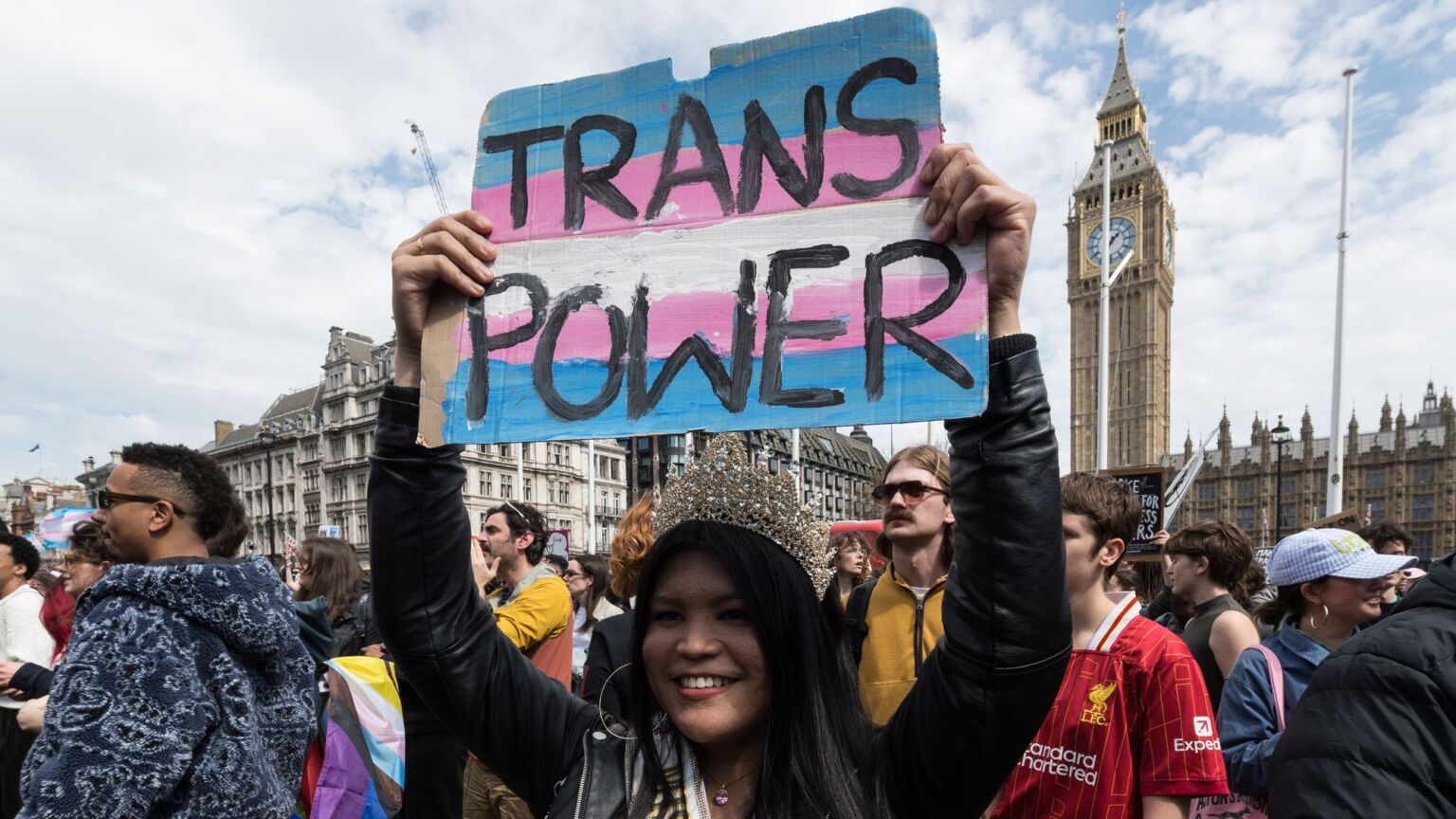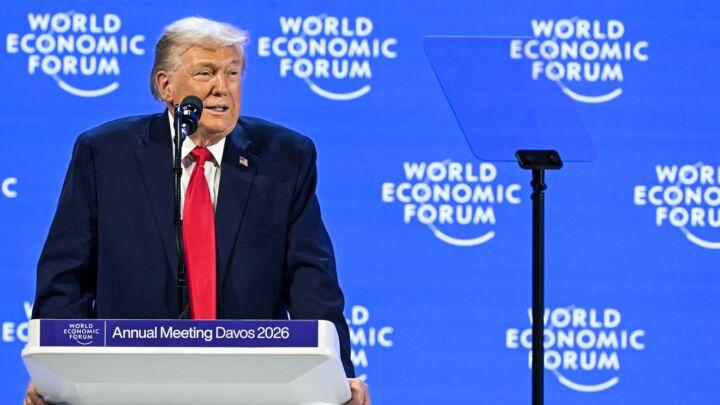We must leave the ECHR to defend women’s rights
Trans activists in the Council of Europe have single-sex spaces in their sights.

Want unlimited, ad-free access? Become a spiked supporter.
Back in April, the UK’s Supreme Court confirmed the blindingly obvious: whether you are a man or a woman depends on biology, not feelings. This ruling, followed by interim guidance from the Equalities and Human Rights Commission, made single-sex spaces possible once more. Women should now be able to use public toilets and changing rooms without encountering men in dresses.
For most people, this signalled a welcome return to common sense. But for transgender activists, it was a challenge to be overcome. They pushed back with petitions, open letters and stunts, such as placing a toilet in the colours of the trans flag outside the Supreme Court. Meanwhile, entitled men like Robin Moira White, a transgender barrister, continued to barge their way into the ladies’ loos, including in the House of Commons. Having lost public sympathy, these campaigners have been more tiresome than effective. And the Labour government, to its credit, has largely stood firm behind the Supreme Court ruling.
But now Europe’s human-rights watchdog has weighed in on the side of transgender activists. In a letter to UK home secretary Shabana Mahmood and other senior MPs, Michael O’Flaherty, an Irish lawyer and human-rights commissioner at the Council of Europe, has warned that the treatment of transgender people in the UK could breach the European Convention on Human Rights (ECHR).
O’Flaherty has form here. In 2006, he played a leading role in establishing what became known as the Yogyakarta Principles – guidance specifying how international human-rights law should be applied to issues of sexual orientation and gender identity. Most significant is the principle that biological sex should be replaced by gender identity in law. This notion, more than anything else, has undermined women’s rights and safety.
Now O’Flaherty wants to put a stop to uppity British women attempting to assert their rights. He thinks his role within the Council of Europe allows him to intervene in Britain’s national affairs. And he has more than just toilets in his sights.
O’Flaherty is also bothered by the British government’s ban on Palestine Action. In another letter, he warned Mahmood: ‘Domestic legislation designed to counter “terrorism” or “violent extremism” must not impose any limitations on fundamental rights and freedoms, including the right to freedom of peaceful assembly, that are not strictly necessary for the protection of national security and the rights and freedoms of others.’
Here’s a question: just who the hell does O’Flaherty think he is? Why should the position of ‘commissioner for human rights of the Council of Europe’ give him any say over the political wishes of the British people?
Palestine Action is a despicable organisation. Many of its members seem to revel in chanting anti-Semitic slogans and intimidating Jewish people. They need to be exposed and arrested if they commit violent and illegal acts. Of course, at the same time, we do need to defend free speech and the right to protest, even for bigots. But the key issue here is that these questions are none of O’Flaherty’s business. It is for the British people alone to decide on which side of the line we fall, between clamping down on anti-Semitism and defending free speech. It is not something that should be determined by an unelected official at the Council of Europe.
O’Flaherty’s interventions have real consequences. Transgender-rights campaigners have welcomed his letters, arguing they open the door to challenging the UK’s guidance on how to apply the judgment of the Supreme Court. They hope the European Court of Human Rights will step in and overrule British law.
Mahmood and the Labour government have criticised the Council of Europe’s interference. Good. But their reasoning is odd, to say the least. They appear less concerned with protecting women’s rights, and more concerned with ensuring Britain’s continued membership of the ECHR. Sources close to Mahmood have suggested not only that she ‘fundamentally disagrees with the assessment’ made by O’Flaherty, but also that she thinks it ‘doesn’t help sustain public confidence in the European Convention when the council is seen to intervene in domestic politics and national security’. A second government figure also told The Times that O’Flaherty’s intervention was ‘supremely unhelpful’ to those attempting to make the case that the ECHR could be reformed while the UK remains a signatory to the convention.
Talking up the importance of sustaining public confidence in the ECHR only shows Labour’s failure to realise that this ship has sailed. The British public has had enough of foreign organisations undermining national sovereignty when it comes to determining policies and practices – including, most significantly, the capacity to deport foreign criminals, which is constantly frustrated by the ECHR. Whether the question is who has the right to live in Britain, who gets to use which toilets, or which groups have the right to protest, the answer, in each case, has to be that the British government decides. In turn, we, the people, have the right to boot the government out at the next election if we do not like the decisions it makes.
It is not good enough to argue that O’Flaherty and the Council of Europe should keep schtum to avoid angering the British public. Almost a decade after we voted to leave the EU, it is time for Britain to shake off the interference from all the other foreign, unelected bodies that seek to meddle in our affairs. We must get out of the ECHR once and for all.
Joanna Williams is a spiked columnist and author of How Woke Won. Follow her on Substack: cieo.substack.com.
£1 a month for 3 months
You’ve hit your monthly free article limit.
Support spiked and get unlimited access.
Support spiked – £1 a month for 3 months
spiked is funded by readers like you. Only 0.1% of regular readers currently support us. If just 1% did, we could grow our team and step up the fight for free speech and democracy.
Become a spiked supporter and enjoy unlimited, ad-free access, bonus content and exclusive events – while helping to keep independent journalism alive.
———————————————————————————————————————————–
Exclusive January offer: join today for £1 a month for 3 months. Then £5 a month, cancel anytime.
———————————————————————————————————————————–
Monthly support makes the biggest difference. Thank you.










Comments
Want to join the conversation?
Only spiked supporters and patrons, who donate regularly to us, can comment on our articles.